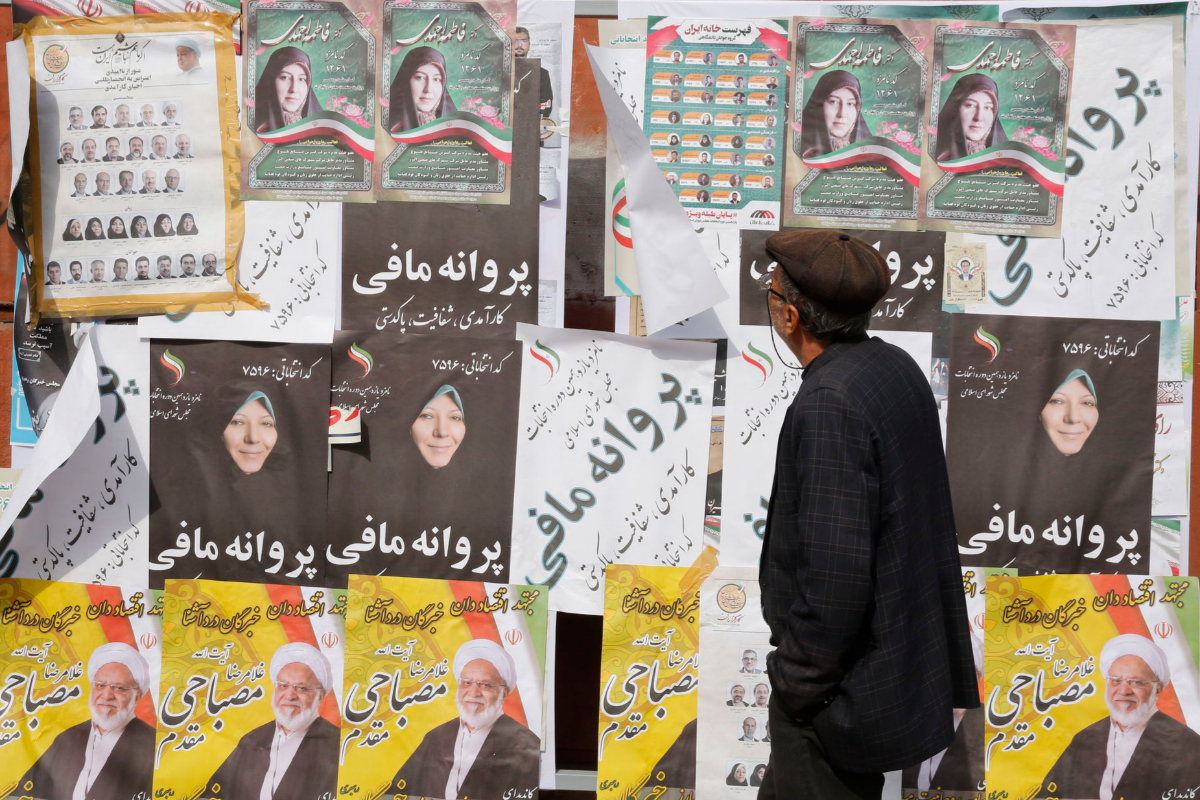- Elections: Frustration and apathy in Iran within a week of parliamentary elections
- Iran: Protests heat the race to parliamentary elections
- Middle East: a citizen will be sentenced to death for spying for the CIA
The Iranian Islamic Republic faces its eleventh parliamentary elections in a sort of political and emotional crossroads. All observers agree that the shocks of recent months, which began with violent economic protests in the provinces of November 2019, and ended the marches in Tehran last month, in which an attempt to cover up the demolition was reported of the Ukrainian plane with a missile, they have made a dent in the average voter.
In the midst of a storm of sanctions, the inability of the administration to satisfy the street has shaken the social contract between power and population , much of it mired in a distress that can move it away from the polls. An abstention, added to the veto to the candidacies of reformist figures - with more 'appeal' among the urbanites - opens the way to the hard line, which already dominates the non-elected organisms, the one that takes control of the camera, in detriment of the reformists and centrists of the Government.
What do they consist of? This Friday, 58 million Iranians are summoned in the schools of 208 constituencies to designate, directly, the 290 seats of the Machlés. Five of these are directly elected by the Armenian (two), Jewish, Chaldean and Zoroastrian minorities (one each). The rest are chosen from open lists, organized in blocks by ideological affinity or strategic reasons. There are no party disciplines. Voters write the name of their favorite candidates on the ballot. The Council of Guardians has been the institution in charge of previously filtering, among the 16,000 registered as applicants, those suitable according to their criteria. His spokesman, Abbas Ali Kadkhodaee, explains that these are strictly legal criteria vis-à-vis reformist politicians, some of whom have criticized having been excluded by political criteria. In total, about 7,100 candidates may have a place in the hemicycle. What forces concur? The vote has traditionally congregated around two main factions: the principalists , who are defined by appealing primarily to the guardianship of the alphabet - the existence of a Supreme Guide with political power - and for his desire to preserve the straight principles of the Islamic Republic as the antagonism with the West, and the reformists , in favor of moving the institutions towards open positions in the international arena, but also opening spaces for civil society. The mainists have trusted their support to the popular classes and rural areas, while the reformists have relied on urban elites. Although the post-election crisis of 2009 was a coup de grace to reformism, this vote moved until the last presidential to centrism, represented by President Hasan Rohani. In these elections, however, the broad exclusion of known figures from reformism and centrism motivated even Rohani to criticize the Council of Guardians. Consequently, the main organizational umbrella of the reformists has not publicly endorsed any candidate in Tehran or in 21 of the remaining 31 provinces. On the other hand, despite being a majority - or precisely for that reason - the main forces have failed to understand each other to unite their candidates in a single list. Up to nine different factions have been formed from these, which augurs a conservative majority in the Machlés, but a non-homogeneous majority. What participation is expected? According to the Ministry of Interior, the previous Legislatures have had a 60.5 % share average. This Wednesday, Kadkhodaee predicted that "we will observe around 50%," which suggests that the authorities are aware of a growing perceived apathy in the streets. Not surprisingly, the Supreme Guide, Ali Jamenei, has called the vote this week considering it a "religious duty", including the continuation of Iran's defense work of the assassinated general Qassem Soleimani.According to the criteria of The Trust Project
Know more- Iran
- World
Elections: Frustration and apathy in Iran within a week of parliamentary elections
IraqMiles of Iraqis demand the departure of US troops as repression against youth protests intensifies
PrimariesMiren Gorrotxategi is presented as the candidate of Pablo Iglesias in his struggle with Rosa Martínez

